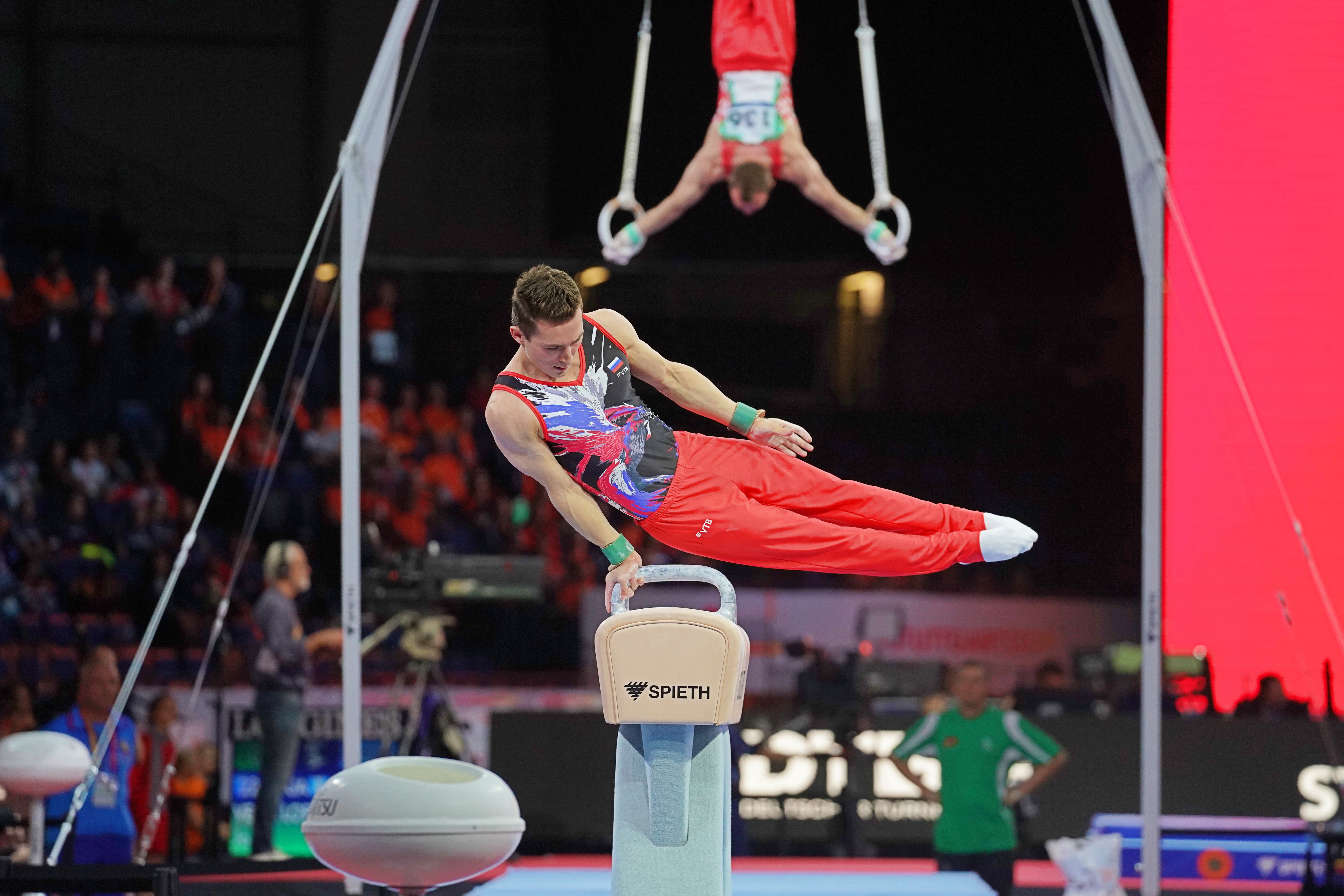Belyavskiy visited his native town Votkinsk and then the capital city Izhevsk in Udmurt region of Russia and gave an interview to Izhlife.
Q: Which trait a person needs to be a champion?
A: Just one trait is not enough. There should be a combination of several traits – hard work, talent, luck. There are many factors that affect winning Olympic medals because if you only have one, you won’t be able to get there. You have to really love what you do.
Q: David, when did you first realize that you could become an Olympic champion?
A: I did gymnastics because I liked it, I didn’t think about rewards. I just did what I loved. I won my first medal at 13 years old, when I was trying out for the Spartakiade in Penza. Before that, at the Udmurtia Championships, there were just no medals. They weren’t given out. Yes, now, people are awarded medals and it’s right. Kids should feel like they’ve won.
Q: How did it feel to compete without the anthem and the flag.
A: Actually, there was the anthem from my original home, from my home town Votkinsk. It was by Pyotr Ilyich Tchaikovsky. Yes, we didn’t have a flag but everyone knew which country we represent. It was inside us. We came out to compete striving for good results and, I think, we’ve accomplished that.
Q: What was the hardest part of your journey to become a champion?
A: The whole path is difficult. It’s never easy. You have one set of difficulties today, a different one tomorrow. Sometimes, you’re injured, sometimes you’re not allowed to compete, there’s doping somewhere. There are many things. Every day, you overcome difficulties. For example, yesterday you trained for 6-7 hours but it’s hard to get up in the morning. This is also a barrier.
Q: What was the most emotional moment at the Olympics besides the award ceremony?
A: Waiting for Nikita Nagorny’s score. I think you could see it in your faces if you watched the stream.
Q: Tell us about the Olympic villages [at your three Olympics].
A: They don’t really differ much. It’s a regular apartment with two or three bedrooms. For example, this time, there were three bedrooms. There were two people per room. Two showers and that’s it. There’s nothing else. Six beds, six bedstands, and two showers. That’s what usually happens in Olympic villages, but this time, because of the virus, there were preventative measures taken and we were tested every day, our temperature was taken 2-4 times. We wore masks everywhere. It was really hard to compete in masks. Or, rather, not to compete in it, but to wear it constantly during the Olympics, because as soon as you dismount the event and need to catch your breath before the next event, you have to put a mask on. That was difficult. I expected more from Tokyo – to be more organized, more some sort of innovations, because before that, when I visited Japan, the country seemed like a completely different world to me. It’s not Europe or China. The most important thing was that we got results and what we slept on or what we ate doesn’t matter at all.
Q: You’re the national team captain. Why did you become the captain, on the basis of what traits?
A: The 14 of us were lined up. We were asked, “Who’s voting for David?” – that’s how I became the captain. A captain isn’t chosen because of certain traits. I think it was better this way because we have very hot-headed guys – Artur and Nikia. They can lost their temper and so on. There was a need for someone who would slow them down a bit, with a cool head and a hot heart.
Q: David, how is it to become an Olympic champion? Is it tears, sweat, and blood?
A: Yes, yes, of course. I think that people who watched the stream saw our emotions. There were really tears, blood, and so one. It was obvious, of course.
Q: Is Udmurtia still your home region?
A: Of course. I come here with visits, I started my career in Udmurtia, I started training in Votkinsk. Here, in Izhevsk, we came for our first competitions, we slept here on the mats. This sports school is like home to me.
Q: What is your goal now – to continue your career for as long as you can or to stop at the Olympic gold?
A: Of course, I’ll continue, I’ll start preparing for Paris and then we’ll see if I’ll be able to make it. It’s a different matter.
Q: Besides being the team captain, you are also the designer of the uniforms in which the men’s team competed at the Olympics.
A: You could say so. But it’s rather my wife’s doing. We have our own brand and she designs and promotes it, while asking me for advice.
Belyavskiy said to the young gymnasts at the meeting with him:
“You are all doing gymnastics and I’ve been doing it as well. This is the gym where my first competitions and my first victories took place. It became like home for me. I want to wish you success, so that you will never stop and only keep going, because at my first competition, Olympic Hopes, I lost. Then I continued losing, but at some point, I became successful, then my career started to develop and it got to an Olympic medal.”
Support Gymnovosti on Patreon from only $1 a month and help us bring to you even more awesome gymnastics coverage!



